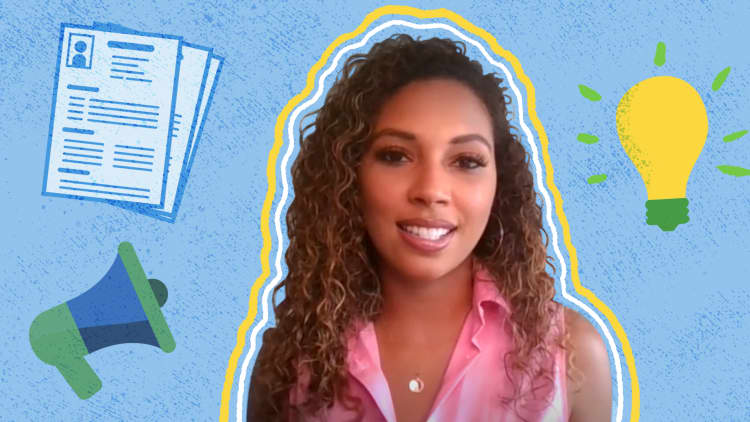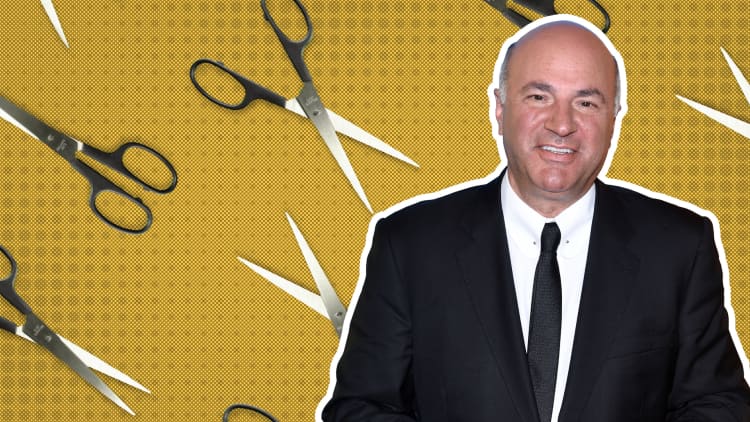In 2010, after I graduated with a master's degree in journalism in the U.S., I went home to Greece to visit my family and friends. For months, Greece had been making international headlines about its fiscal issues, but experts at the time predicted the country would bounce back in a year or two.
It was an unsettling time. There weren't a lot of jobs and many of my friends were heading to Western Europe to find work. Fortunately, my scholarship had covered my educational expenses. And I had a job waiting for me in New York, which I had lined up through my yearlong Fulbright scholarship.
But once the Fulbright program ended, I had two choices. I could get a job in Greek media that, if I was lucky, would pay at most about $670 a month due to austerity measures. Or I could start freelancing. So I decided to work for myself.
More from Grow:
6 jobs remote jobs that pay up to $71,000 per year
7 jobs in high demand right now (and what to know before applying)
6 remote jobs in high demand that can pay up to $77,000 per year
A decade later, the employment and nationwide debt situation in Greece is still tough, and like many countries, our economy has been affected by the pandemic. Weathering the Greek economic crisis changed how I think about money and my career. I have worked steadily as a freelance writer and video journalist, paid off debt, and created an emergency fund. Those experiences have helped me to feel more prepared during this uncertain moment.
Here is what I've learned.
Always be on the lookout for new opportunities
Even if we don't realize it, so much of our identity can be tied up in our work. I know many smart and talented people who struggled with that after losing their jobs. While I was looking for work, and later building up my client base, I experienced this too.
Early on, I was in Greece, working a remote part-time social media job for a production company based in New Jersey, when a journalist friend offered me a three-day television producer assignment for a British TV station. While it wasn't full-time, it was a chance to learn and build relationships, and it would cover some expenses.
That experience helped me realize that the only way that I could move forward was to create opportunities for myself. So whenever I can, I look for ways to subsidize my professional development, utilizing scholarships that cover workshops and travel expenses — like a week-long training in digital media I completed at Ohio State University, and another three-week training at Columbia Journalism School about investigative reporting.
Resources like these have helped me develop new skills — I can work as a writer, a video producer, a camerawoman, a video editor, a social media manager, a translator, and a researcher — in order to give myself more flexibility and a more varied pool of clients.
But before any of this began to fall into place, a big step I had to take was to stop comparing myself to others, especially on social media. This can be tough, but by prioritizing my offline life, celebrating my wins no matter how small, and making plans for the future, I have been able to focus on projects that are meaningful to me and still pay the bills.
Small changes over time can have a big impact
When I started freelancing, I needed to account for months where my income would be low as I gained new clients, so I started keeping a budget.
In an Excel spreadsheet, I tracked everything I spent for a couple of months to see where I was potentially overspending and what I felt comfortable cutting back on. My partner and I have been able to save over the past 10 years largely by being intentional about how we spend money.
I'm a big fan of batch cooking and freezing meals over the course of the week. That way you can plan for exactly how much you need to purchase when you go shopping, and even budget for an occasional take out night to treat yourself without breaking the bank.
When we looked for our apartment, my partner and I considered the amenities that were generally important to us, like outdoor space and a quiet street. But we also drilled down to specifics and chose to rent in a building with better thermal insulation than our last apartment. You might not think that would make a big difference, but as a result we save thousands of dollars in heating every month. That's money we are putting toward our goal of buying a house together.
Another line item that's helpful to watch out for is your subscriptions. Even as recently as March, when video gigs I had planned were canceled due to the pandemic, I stopped the subscriptions I wasn't using and was able to put $50 each month towards other expenses.

Video by Mariam Abdallah
Keep moving forward
As I started building my base of freelance clients, I was fortunate to be able to borrow $7,000 from my family. Over the course of five years, whenever I got a good gig — one where I could bring in $3,000 to $4,000 for a 10-day assignment, for example — I would keep 1-to-2 months' worth of expenses from that job and use what remained to go towards paying them back.
Sometimes it could feel like a constant two steps forward and two steps back, but three years ago, thanks in part to our saving strategies, I was able to pay them back in full, and I have been debt-free since then. Today, I have an emergency fund that can cover my expenses for six months, even if I don't land a single gig.
Over the 10 years, I have been able to build up a career I am proud of. But I also know that if ever needed to start over, I would be OK. In addition to journalism, I also have a passion for tourism, farming, and agriculture, thanks in part to my family's farm. We grow berries, apple trees, and olive trees, and while it isn't yet an operational business, I can see the potential. I make sure to devote time to learning all I can about it, so if the day comes when I want or need to shift gears, I'll be ready.
Nikolia Apostolou is a multimedia journalist currently sharing her time between Kalamata and Athens, Greece. For the last decade, she has been writing and producing documentaries based out of Greece for publications such as NBC, BBC, The Associated Press, AJ+, The New York Times, The New Humanitarian, and many others. Nikolia earned her master's degree in digital media at the Columbia University Graduate School of Journalism.
The article "Money Strategies That Helped Me Thrive During the Greek Economic Crisis" originally published on Grow+Acorns.


